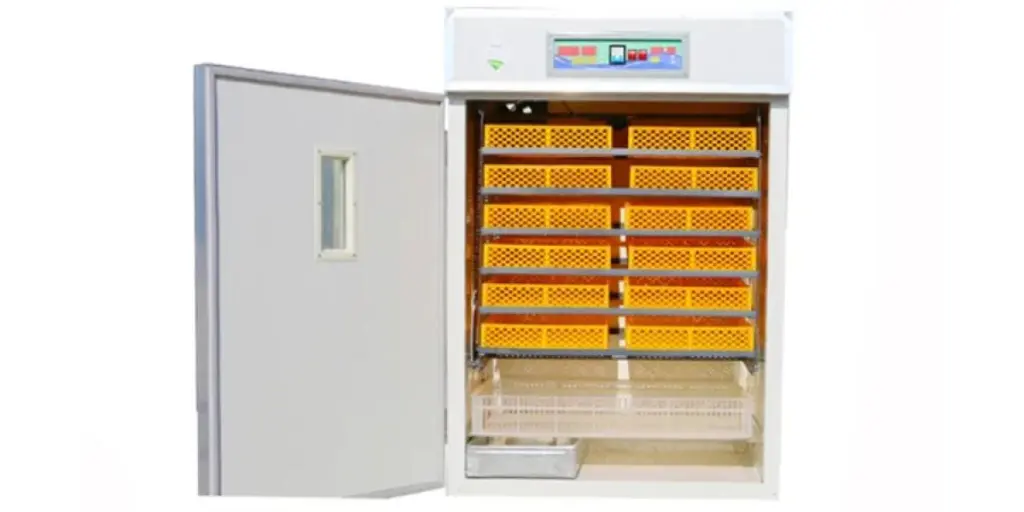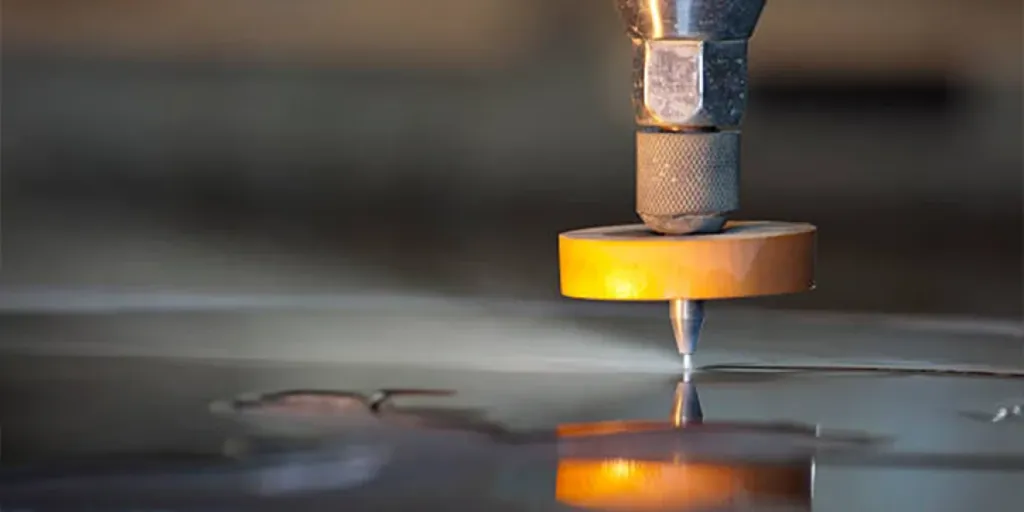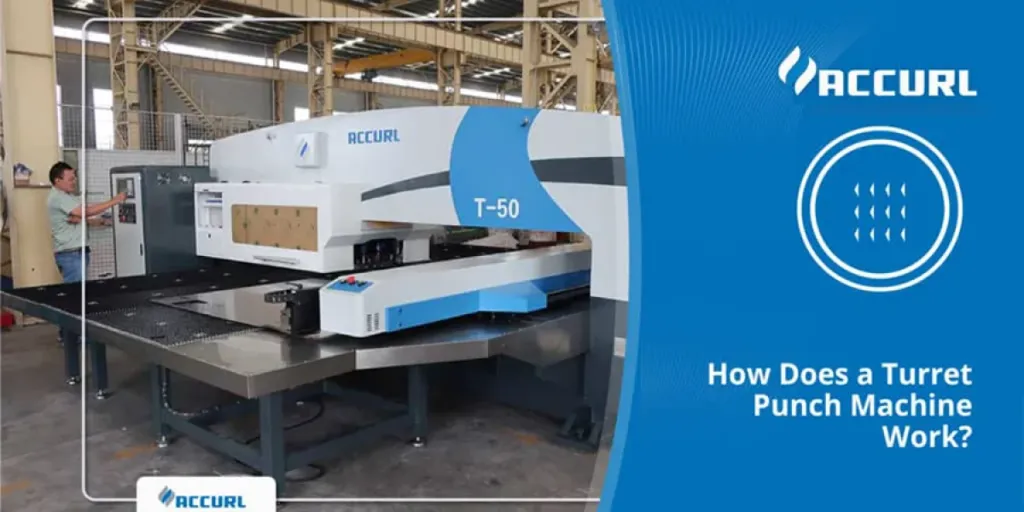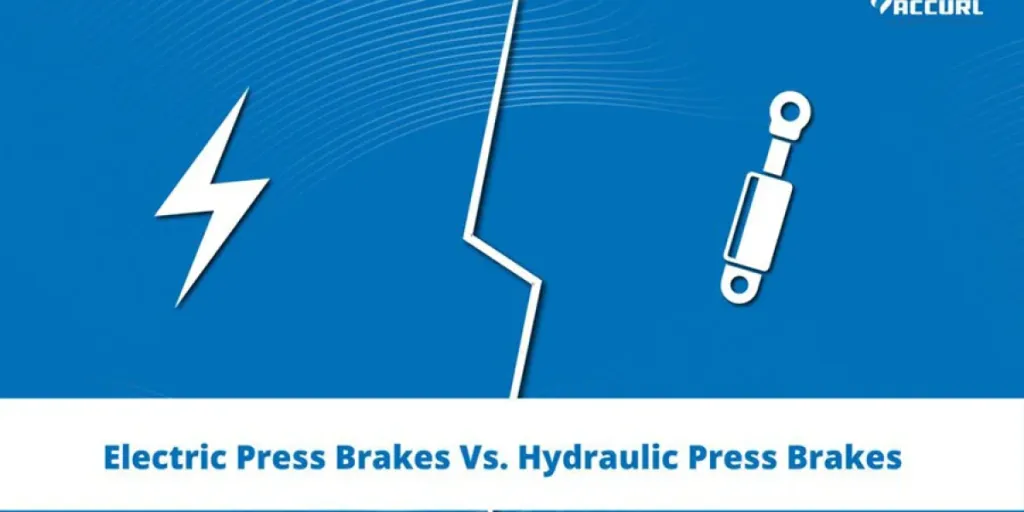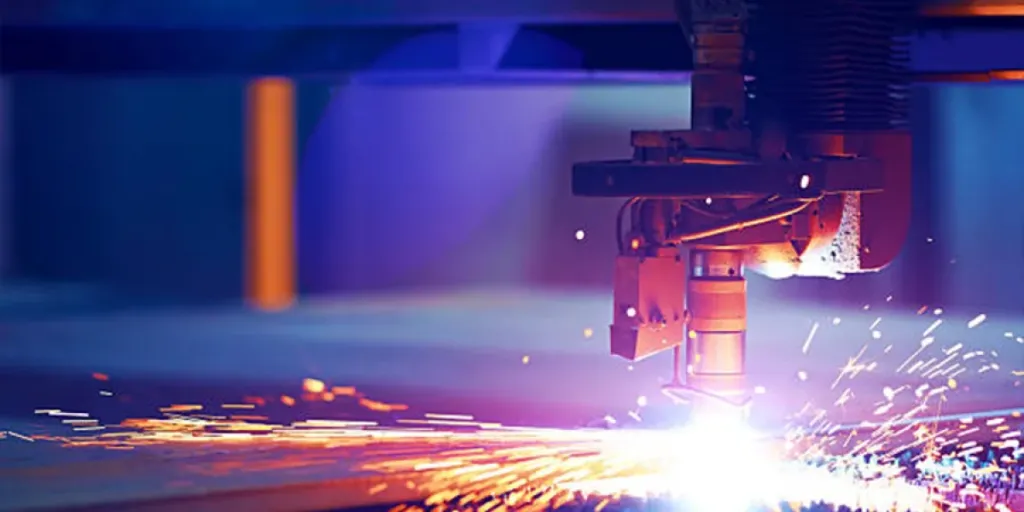Chicken egg incubators provide an optimal environment that makes it possible for fertilized chicken eggs to develop and hatch. These machines increase hatch rates and ensure the eggs get the needed humidity and warmth. Many chicken egg incubators are available in the market, which can make it challenging to find the right ones to purchase.
This guide will discuss how chicken egg incubators work, as well as exploring the various types of chicken egg incubators available. It will also offer some key tips for selecting ideal incubators.
Table of Contents
How chicken egg incubators work
Types of chicken egg incubators
How to select chicken egg incubators
Summary
How chicken egg incubators work
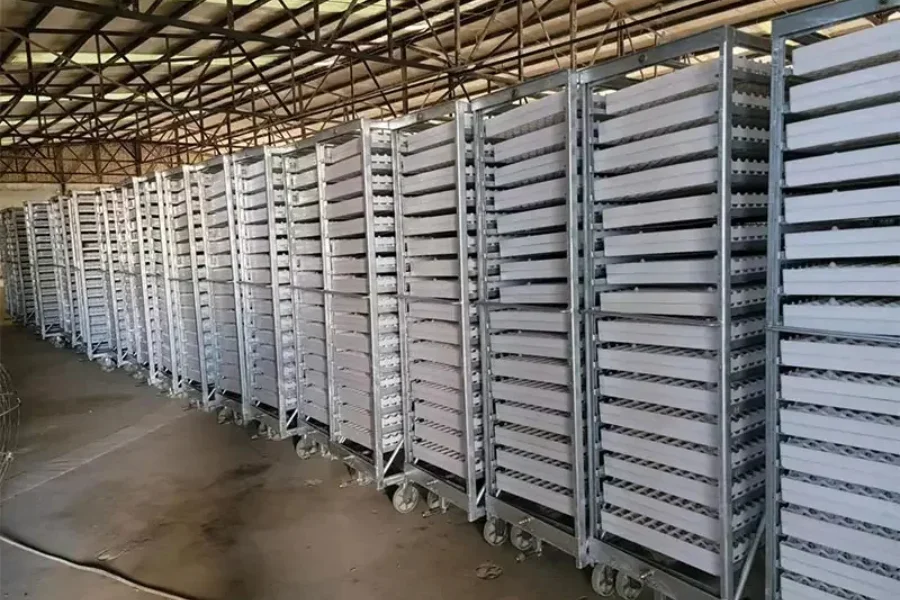
Chicken egg incubators simulate the conditions for fertilized chicken eggs to hatch into chicks by maintaining the optimal temperature, humidity, and ventilation levels. Heating elements and thermostats are used to ensure that the temperature within the incubator remains between 99°F to 101°F (37.2°C to 38.3°C). The humidity levels are maintained at around 50-60% for the first 18 days of incubation and then increased to 65-75% for the final days leading up to hatching.
Many chicken egg incubators include automatic egg-turning features that replicate the actions of brooding hens. Eggs must be turned every few hours to prevent the yolk from adhering to the inside of the eggshell, as it can negatively impact the chick’s development.
Types of chicken egg incubators
1. Forced-air chicken egg incubators
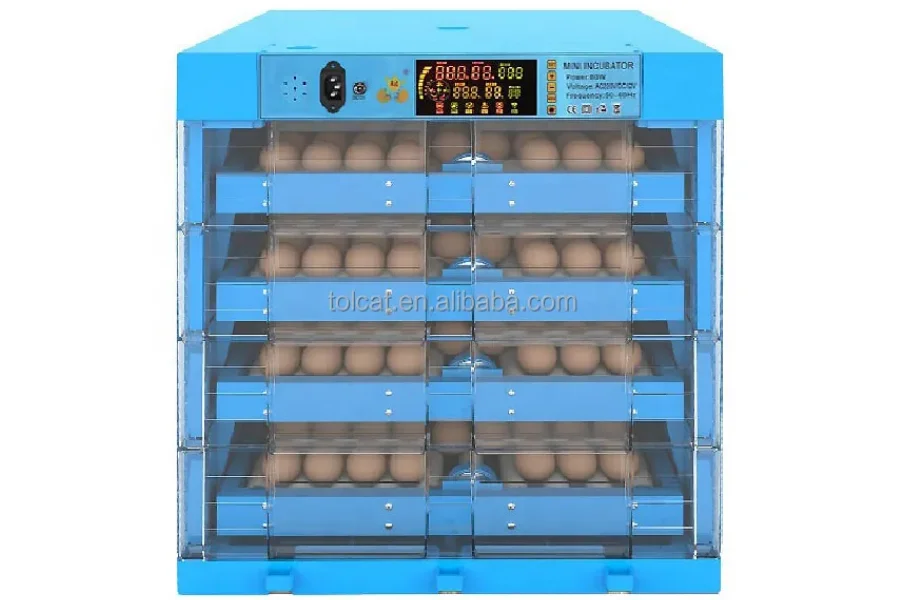
In forced-air chicken egg incubators, warm air is evenly distributed throughout the incubator with the help of a fan. It ensures the temperature and humidity levels are consistent, essential for higher hatch rates and shorter incubation times. The fan ensures that heat and humidity are uniformly distributed throughout the incubator, preventing hot or cold spots from developing that could harm the process.
Forced-air incubators are perfect for those who want to hatch large numbers of eggs at once and maximize their hatch rate while minimizing the time required for incubation. They are also ideal for professional hatcheries and commercial farms prioritizing efficiency and productivity.
2. Still-air incubators
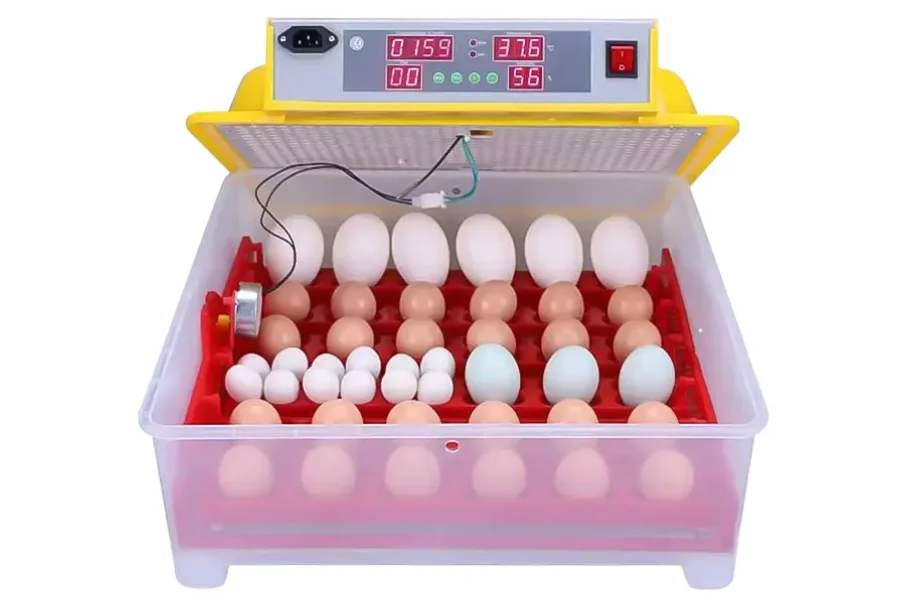
Still-air incubators utilize natural convection to distribute warm air throughout the incubator. As a result, the temperature and humidity levels may not be as consistent as those in forced-air incubators. This can cause hot and cold spots, resulting in uneven egg development and hatch rates.
Despite this drawback, still-air chicken egg incubators are typically less expensive than their forced-air counterparts, making them a popular choice for those new to egg incubation or with budget constraints. Still-air incubators are also suitable for those who only need to incubate a few eggs and are willing to trade off some hatch rate and incubation time for cost savings.
How to select chicken egg incubators
1. Cost
When purchasing a chicken egg incubator, it is important to consider the cost while balancing affordability and quality. The average cost of chicken egg incubators ranges from US$ 50 to US$ 500, depending on the type and features. Opting for a cheap incubator may save money upfront, but it often comes with less reliability, lower hatch rates, and other issues leading to additional costs in the long run.
Conversely, high-end incubators can be expensive but often have advanced features and better build quality, resulting in higher hatch rates and better overall performance. Conducting thorough research on the available options and establishing a budget beforehand is crucial to ensure a wise investment in quality egg incubators.
2. Capacity
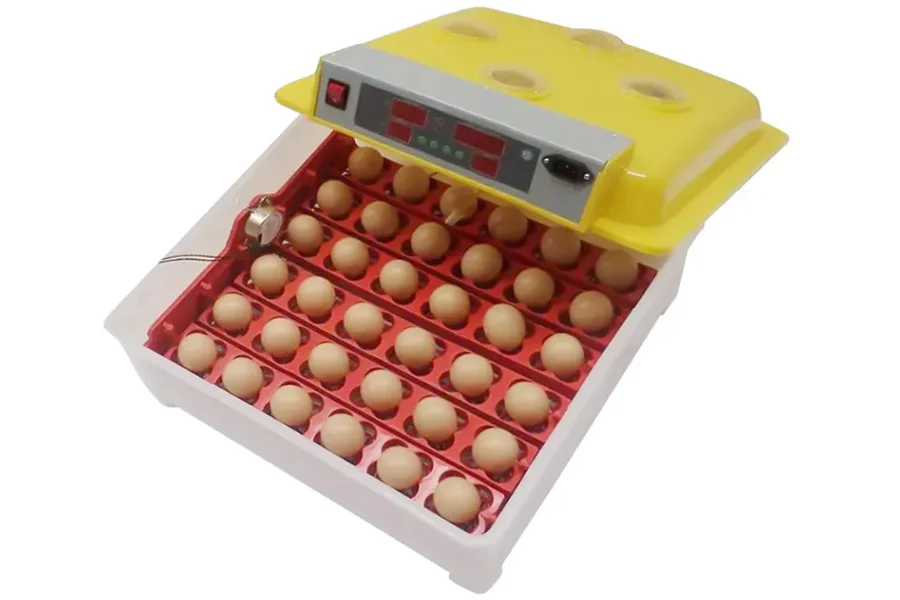
The capacity of an incubator determines the number of eggs it can hold and incubate at once. Incubators come in various sizes, with different capacities ranging from a few eggs to several hundred.
The capacity needed depends on the number of eggs planned to incubate. A small incubator with around 10-20 eggs may be sufficient for small-scale egg production. However, for a larger number of eggs for commercial purposes, an incubator with a higher capacity usually ranges from 50 to 1000 eggs.
3. Durability
A reliable chicken egg incubator is built with high-quality materials, such as durable plastic or metal, which can withstand frequent use and last many years. The lifespan of an incubator can vary depending on the quality of its materials and construction. A well-maintained incubator lasts 5 to 10 years or even longer.
4. Features
Choosing an egg incubator with the right features is critical. Humidity control is key to ensuring the eggs do not dry out or become too moist during incubation. Temperature regulation is another essential feature that maintains a consistent temperature throughout the incubation process. Ventilation provides fresh air to the eggs and prevents the buildup of harmful gasses.
Digital displays and alarms help monitor and maintain the correct temperature and humidity levels, alerting any issues that may arise. The automatic egg-turning feature mimics a brooding hen’s natural behavior and helps ensure the embryo’s constant development.
5. Type
The type of chicken egg incubator is also an important factor to consider. Two main types of chicken egg incubators are available: forced-air incubators and still-air incubators. Forced-air incubators use a fan to circulate warm air throughout the incubator, ensuring even temperature and humidity distribution.
On the other hand, still-air incubators rely on natural convection to circulate warm air within the incubator. They are less expensive but may produce less uniform temperature and humidity distribution. Choosing the right type of incubator depends on your needs and budget.
6. Quality
The quality of a chicken egg incubator is influenced by various factors, such as the materials used in construction, the design, and the manufacturing process. Incubators of high-quality materials such as sturdy plastics, metals, or fiberglass are generally more durable and reliable, while cheaper materials may be less reliable.
To ensure that you select a quality incubator, research the brand and read reviews from other customers. Although high-quality incubators may cost more upfront, they can provide better hatching results and last many years.
Summary
To ensure you purchase the most suitable chicken egg incubator, it is crucial to consider several factors, including cost, capacity, durability, features, type, and quality. Considering these factors helps you make an informed decision and select an incubator that meets your specific needs. Alibaba.com provides a wide selection of high-quality chicken egg incubators catering to your requirements.
